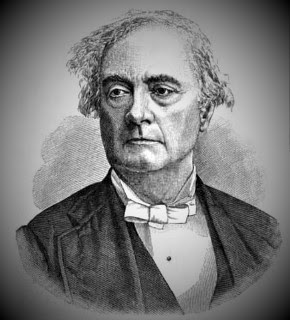Chapter 22 - Kerrigan Is Freed From Jail
Kerrigan
was in prison on murder charges for 18 months, but he was never brought to
trial even though the law demanded a defendant be brought to trial within two
terms of the court. It was during his 18 months in prison that Kerrigan
testified as the primary prosecution witness against men accused of being Molly
Maguires (McBride, Page 77). A motion to discharge Kerrigan from the custody of
the court was subsequently made by the three attorneys prosecuting Campbell,
Kelly, Doyle and Donohue. This, in and of itself, is astounding, since this
motion is usually proffered by the defense attorneys against the prosecution.
This is also evidence of a deal between the prosecution and James Kerrigan.
These
prosecuting attorneys were also attorneys for the coal and railroad companies,
each having a vested interest in finding the men of the Storm Hill AOH chapter guilty.
Lead attorney Albright was an attorney for the Lehigh-Wilkes Barre Coal
Company, Frank W. Hughes was an attorney for the Philadelphia and Reading Railroad
and Coal Company (owned by Franklin B. Gowen), and Allen W. Craig was the
attorney for the Lehigh Valley Railroad Company (owned by Asa Packer). Their
argument for the motion to discharge was that District Attorney E. R. Siewers
was not ready to prosecute Kerrigan. No reason was given why his case was not
ready since Kerrigan had been in prison for at least 18 months. Judge Dreher
concurred with this motion and Kerrigan was released from prison on April 10,
1877 (McBride, Page 78).
Kerrigan
was given official recognition for services performed in a petition filed,
which read: “And now, April 10, 1877,
upon motion of Messrs. Hughes, Albright and Craig, it appearing that James
Kerrigan, the defendant, having been indicted for the murder of John P. Jones,
January 17, 1876, and more than two full terms having elapsed since the
indictment, the said defendant is therefore discharged from the further custody
of this court, upon said charge the District Attorney not being prepared to
prosecute said defendant.” ”I have no objections to the above motion for
discharge.” said E.R. Siewers, District Attorney (Bimba, page 282).
As usual, during the trials, there was a phalanx of reporters from around the country, delirious in appetite to report the news from the courtroom. As the reporters entered the courtroom, they were taken aback that James Kerrigan was seated at the prosecution table. At the time we entered the Courtroom, we were not a little astonished to perceive the famous “Little Squealer” occupying Gen. Charles Albright’s accustomed seat, right in front of the bench. But this was soon and fully explained to our satisfaction, when Gen. Albright, with the concurrence of the District Attorney, moved the discharge of Kerrigan, which was at once granted by the Court, and Mr. James Kerrigan left the Courtroom, a happier, if not a better man, than he’d been during the last 19 months or ever before. James was neatly if not nobly dressed, and as he departed from the seat of justice it was with the air of one conscious of having done the state some service (Carbon Advocate, page 4).
Within ten minutes after Kerrigan's discharge, he visited the Coal Gazette office and was interviewed with the following reported:
Reporter - Well Jimmy, I suppose you are happy on account of your release.
Kerrigan - Yes, sir, I am. I had no knowledge that I was to be released until just before dinner. The whole thing was a complete surprise to me. I have spent a little over nineteen months in jail, and while I have no fault to find with the way I was treated there, I am very glad to get out.
Reporter - What do you propose to do?
Kerrigan - Well, I am going to Tamaqua tonight.
Reporter - Is there no some danger in your going back at this time?
Kerrigan - I think it is a duty I owe to my family to go to them at the earliest moment. I will start on the six o'clock train.
Reporter - Have you anything you wish to say through the columns of the Coal Gazette to the public?
Kerrigan - I want to say that I am very thankful to the Commonwealth's attorneys for their treatment of me, and especially General Albright. He always told me to tell nothing but the truth in my evidence, and gave me good advice not to drink and to attend well to my church duties.
Reporter - What do you intend to do?
Kerrigan - My plans are not matured. However, I intend to let drink alone and keep out of bad company...(Bimba, page 282).
Francis Wade Hughes, Esq.

